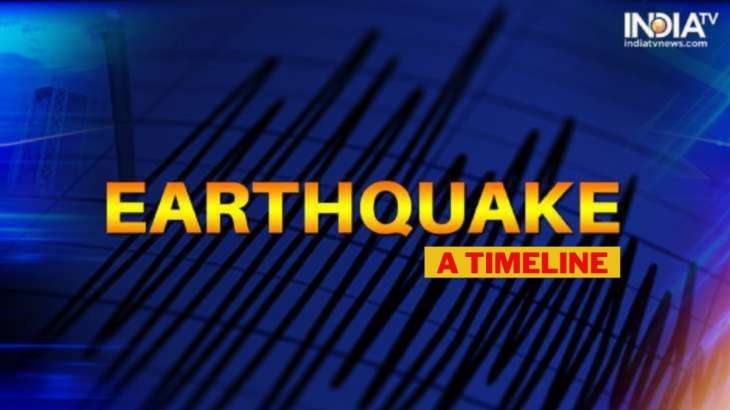
[ad_1]

Earthquakes: An earthquake of magnitude 7.8 on the Richter Scale devasted Turkey and Syria on Monday (February 6), killing more than 4,000 people in both countries. Apart from claiming human lives, the quake also toppled thousands of buildings across a wide region in the two Western Asian nations. Meanwhile, Turkish President Recep Tayyip Erdogan declared seven days of national mourning.
The epicentre of the quake was in Turkey’s southeastern province of Kahramanmaras. According to reports, three back-to-back tremors sent residents of Damascus and Beirut rushing into the street and were felt as far away as Cairo.
Meanwhile, thousands of buildings were reportedly reduced to rubble in a wide area extending from Syria’s cities of Aleppo and Hama to Turkey’s Diyarbakir. The rescue operation is underway as one of the most powerful quakes in the region in at least a century, wiping out entire sections if major cities in the two countries.
Here is a list of some of the world’s deadliest earthquakes since 2000:
- January 26, 2001: A magnitude of 7.7 quake strikes Gujarat in India, killing 20,000 people.
- March 25, 2002: About 1,000 people were killed in a magnitude 6.1 quake in northern Afghanistan.
- May 21, 2003: More than 2,200 people were killed in a magnitude 6.8 earthquake in Algeria.
- December 26, 2003: A magnitude 6.6 earthquake hits southeastern Iran, resulting in 50,000 deaths.
- December 26, 2004: A magnitude 9.1 quake in Indonesia triggers an Indian Ocean tsunami, killing 230,000 people in a dozen countries.
- March 28, 2005: A magnitude 8.6 quake in northern Sumatra in Indonesia killed about 1,300 people.
- October 8, 2005: A magnitude 7.6 earthquake killed over 80,000 people in Pakistan-Occupied Kashmir.
- May 26, 2006: More than 5,700 people died when a magnitude 6.3 quake hits the Java island in Indonesia.
- August 15, 2007: A magnitude 8.0 earthquake near the coast of central Peru killed more than 500 people.
- May 12, 2008: A magnitude 7.9 quake strikes eastern Sichuan in China, resulting in over 87,500 deaths.
- April 6, 2009: A magnitude 6.3 quake killed more than 300 people in and around L’Aquila in Italy.
- September 30, 2009: More than 1,100 people died when a magnitude 7.5 quake hits southern Sumatra in Indonesia.
- January 12, 2010: In Haiti, a staggering 316,000 people were killed by a magnitude of 7.0 quake.
- February 27, 2010: A quake of magnitude 8.8 shakes Chile, generating a tsunami and killing 524 people.
- March 11, 2011: A 9.0-magnitude quake off the northeast coast of Japan triggers a tsunami, killing more than 20,000 people.
- September 24, 2013: A magnitude of 7.7 quake strikes southwest Pakistan, killing more than 800 people.
- August 3, 2014: A magnitude 6.2 earthquake near Wenping, China, kills more than 700 people.
- April 25, 2015: In Nepal, more than 8,800 people are killed by a magnitude 7.8 earthquake.
- Aug. 24, 2016: A magnitude 6.2 earthquake in central Italy kills more than 300 people.
- September 28, 2018: A magnitude 7.5 earthquake hits Indonesia, killing more than 4,300 people.
- August 14, 2021: In Haiti, a magnitude 7.2 earthquake killed more than 2,200 people.
- June 22, 2022: In Afghanistan, more than 1,100 people died in a magnitude 6.1 earthquake.
What causes earthquakes?
It should be mentioned here that an earthquake is caused by a sudden slip on a fault. The tectonic plates are always slowly moving, but they get stuck at their edges due to friction. When the stress on the edge overcomes the friction, there is an earthquake that releases energy in waves that travel through the earth’s crust and cause shaking. An earthquake usually depends on geographical settings and the movement of tectonic plates. In case of Turkey, it is located mainly on the Anatolian Peninsula in Western Asia.
(With inputs from AP)
ALSO READ: EXPLAINED: Why Turkey is prone to deadliest earthquakes in the world; lessons to be learnt
[ad_2]
Source link